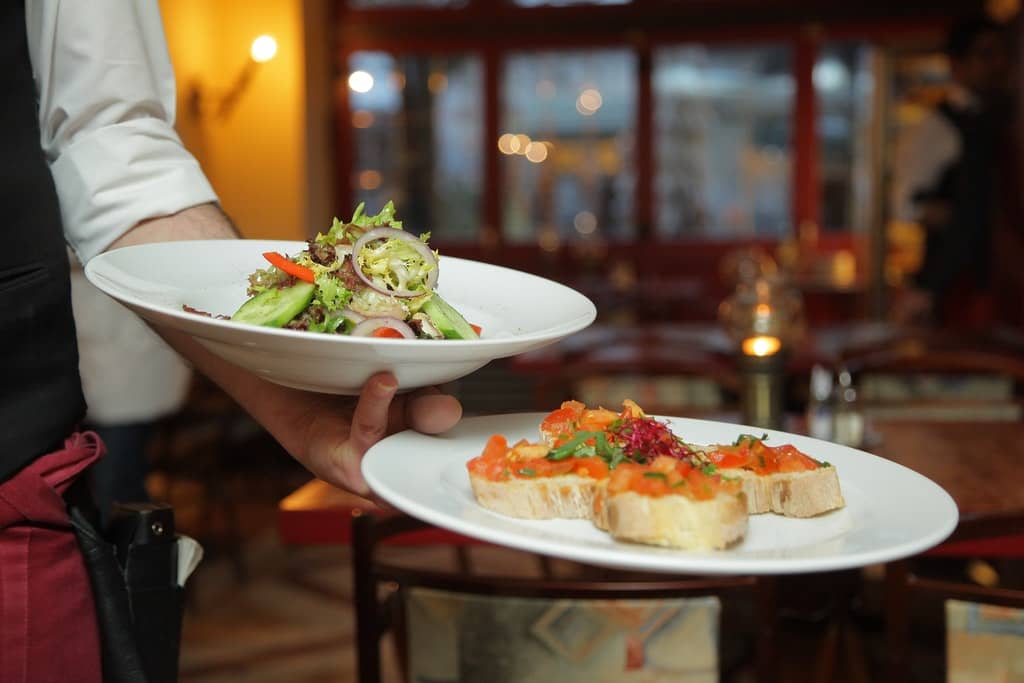Astute restaurant owners carefully analyze financial data. Make sure your company concept is financially viable by researching expenses, pricing methods, and profit margins.
There’s no doubt that a restaurant business can be very profitable. Research shows that over 50% of Americans choose to eat out at least four times a month.
That translates to a vast customer base for entrepreneurs who want to dive into this multi-billion-dollar industry.
However, being a small business owner in the restaurant industry can be a bit challenging.
That’s because these entrepreneurs require a lot—from creating a business plan to its actual launch and managing its operation.
For prospective business owners, here are five smart things to research before opening a restaurant.
5 Things to Research Before Opening a Restaurant
Expertly navigate health laws, licenses, and permissions. To ensure a seamless restaurant debut, it is essential to do thorough research on regulatory requirements.
#1. Know your niche.
The restaurant business is multi-faceted, so you have to narrow down your area of interest and design everything accordingly. This means everything from light fixtures to menu items.
Deciding on a niche and sticking to it will help your small business stand out, and it’ll also determine the type of equipment you need.
While every restaurant needs generalized equipment (such as a commercial refrigerator, oven, freezer, coolers, stainless steel counters, and more), you’ll still require those peculiar to your niche.
For instance, you’ll need a pizza oven if you’re running a pizzeria. If you plan on having a bar, you’ll need a liquor license as well.
Whatever you decide will be the niche, make sure that you find a supplier you trust for all your equipment needs, especially commercial refrigeration.
The last thing you want is for your supplies to be past their expiration date. You know that you’re not wasting food and, therefore, money by getting high-quality freezers and true refrigeration products.
#2. Buy adequate restaurant equipment and supplies.
Your equipment is another crucial part of the operation. Sure, it sounds like a bit of a cliché, but a piece of kitchen equipment isn’t simply a conventional work tool. It also saves you time and money.
And that’s not all. The right equipment will also help promote safety in your workspace.
That being said, always look for an excellent supplier when it comes to restaurant equipment.
That way, you’ll have all your everyday production equipment: freezers, fridges, and more.
As a certified dealer of True Manufacturing products, suppliers like Go Food Service can supply true refrigerators of commercial grade to keep foods in consumable condition.
Whether you’re after a True pizza prep table, a True freezer, or general equipment for a commercial kitchen, they have it all.
#3. Get insurance.
Business insurance is essential if you want to protect yourself and your restaurant., but it can be complicated to compare different options to find the best business insurance for your small business.
Thankfully, on sites like iSelect, you can compare all types of insurance products from various providers.
It’s a useful tool for comparing small business insurance quotes and saving. Take a look at these various business insurance policies:
- Property insurance: This policy covers building or property damage, equipment, food present in freezers, etc.
- General liability insurance: This will protect you from claims, lawsuits, etc. Liability insurance is either full or limited, depending on the kind of policy you choose. You can take out general liability and later purchase additional coverage as your business grows and the number of employees increases.
- Workers’ compensation insurance: This one happens to be government-imposed, so you can’t wriggle yourself out of it. It covers wage replacement for your workers, including medical entitlements, in case of a work-related injury.
- Commercial auto insurance: Any business vehicle, borrowed or leased, needs this coverage. If your staff uses their cars for delivery, this insurance still covers your business in case of any exposure.
Carry out market research.
The hospitality and food industries are highly competitive.
Now, thanks to consumers’ ever-evolving preferences, you need to do market research to stay ahead.
Moreover, there are no exemptions for newcomers to the restaurant business.
Some of the market research you need includes identifying the customers you aim to attract, the types of menu items that will keep them coming to your restaurant, how much each customer will contribute to your bottom line, the most effective way to get the word out, and your likely peak and off-peak periods.
#5. Look into safety regulations & licensing.
While restaurant business regulations may not be as stringent as they are in the medical industry, keep in mind that vital parts of your business operation are subject to strict inspection. Of course, this largely depends on the country you’re in.
Regardless, for most Western countries, if you fail to meet the requirements or are ignorant or not fully knowledgeable, it’ll likely result in a penalty for violation.
This can be a fine, suspension of your license, or even jail time. Safety is a crucial aspect that you can’t overlook.
You could have a hefty lawsuit knocking at your door if a customer or staff member finds their health compromised because of safety measures you did or didn’t put in place.
Even more, with the coronavirus, regulations may be stricter. Maintain these regulations, and you should be safe from any legal messes.
For the Latest Online Business Updates and information about starting an online business from home, visit Ebuzz Spider and Follow Us on Facebook.
